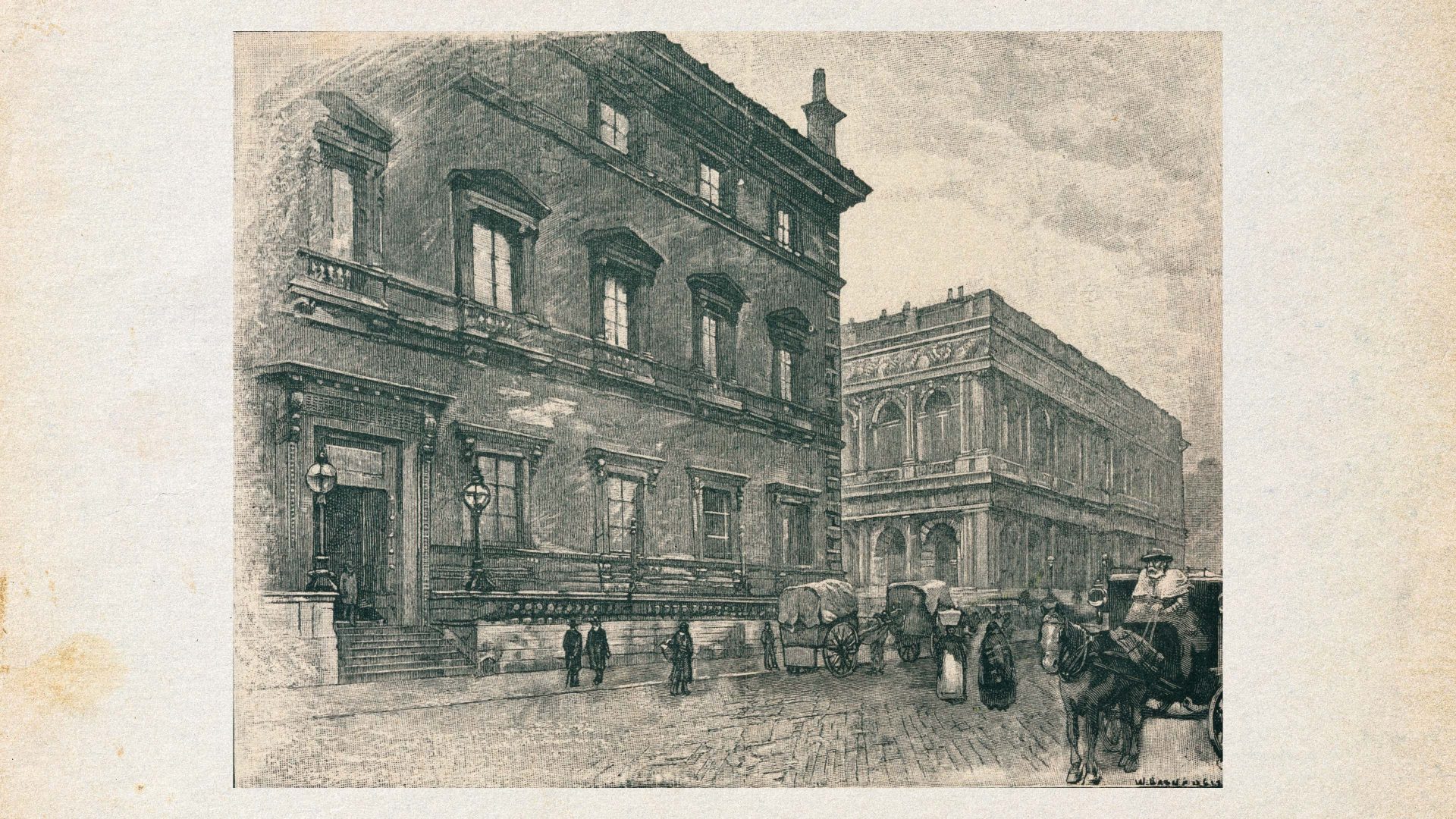I did a lot of time-travelling when I was a child. Quite often, on a Saturday afternoon, I’d take the tube from East Finchley into the West End, walk a few hundred yards, enter an impressive building on Pall Mall, and in so doing go back a hundred or so years or more and experience the culture of the 1870s.
I was never quite sure why my father belonged to one of London’s notoriously snobby gentlemen’s clubs – or, indeed, why he thought it a good idea to meet me there, once he’d debunked from the family semi in the ‘burbs, but nonetheless: that was his preferred venue. A prominent and left-leaning “activator” in the 1960s and 70s (he was an adviser to Harold Wilson’s government on urban planning, among other things), the thick burgundy carpets and porphyry columns of the Reform Club seemed an odd setting.
He hardly required the long streamers of teletyped news reports that were pinned to green baize boards in the enormous Italianate saloon, and while – having been at public school, then Oxford in the 1930s – he was used to all-male society, he loved above all the company of women. (Which explained, in large part, why he was having to meet with his 13-year-old son at his club.)
To be fair to the Reform: it was founded with the avowed aim of providing a place where the radicals who’d pushed through the 1832 Reform Act could keep meet, talk, and foment further, um, reforms – and it was also the first of the Pall Mall clubs to accept women as members, which it did in 1981, around the time Dad emigrated to Australia, and stopped setting foot in the place on a regular basis.
Still, I remember those interminable Saturday afternoons only too well: Dad laboriously filling out our lunch order on a pad (which was the way food orders were conveyed rather than verbally), pausing from time-to-time to confirm yet again, “You don’t like whitebait, do you?” Then, after the mortification of two or three stodgy courses, we’d repair to the gallery above the ridiculously ornate saloon, and adopting a semi-recumbent position that would’ve aroused the ire of a Lady Bracknell, drink coffee and puff cigars.
Later on, there would be interminable games of billiards on an enormous table, the balls whispering, thudding, and cracking. When I went to the gents, I’d pass by some antediluvian bishop or other, creeping crabwise towards the library, in the corner of which, beneath the shelves of gold-tolled spines, I half-expected to see Phileas Fogg, planning his next adventure in space… and time.
Anyway, I thought of this when I read that moves were afoot to finally admit women members to those West End clubs still remaining exclusive to “gentlemen”. I use perverted commas in this context ironically – because what sort of “gentleman” only seeks the society of his own sex, unless his motives are purely sexual? Pratt’s, a club favoured by the landed interest, has just announced it will henceforth accept women members – but Brooks Boodles, the Traveller’s club, and Whites (which has never even admitted a woman as a guest, let alone a member, besides the late Queen), remain cock-centric cenacles.
Most surprising is the at least titularly more bohemian Garrick Club, whose thespian membership still won’t countenance the presence of anyone in a trouser role. Who are these TERMS (or Trans-Exclusive Radical Male Sexists) who are terrified of being attacked while they companionably chow and swill by those who were born biologically female? Step forward Benedict Cumberbatch (or Slender-dick Bumbersnatch as he’s known Chez Self), along with Hugh Bonneville, and that other consummate quick-change artist, Michael Gove.
Shame on you all, Garrick members – and shame on the rest of you prickish clubmen. Still, you might argue that while these institutions still present themselves as the informal talking shop of the establishment, where the great and the good clandestinely pull the strings of us puppet people, no self-respecting person of any sex or gender should set foot inside them. Black and brown members are conspicuously absent from the West End clubs – while even those that have admitted women retain overwhelmingly male membership (geddit!).
Which is why it gladdened my heart when I was taking a group of my students on a walking tour of the West End, and, after having explained all of this to them on the steps of the Reform Club, two of their number simply bashed through its double doors and went on an extempore tour.
Two young women in their twenties, one of Nigerian heritage, the other Bangladeshi (and wearing a hijab), they were in the club for a little more than 80 seconds, but during their brief circumambulation, they were being quite as revolutionary as its most famous – albeit fictional – member.



